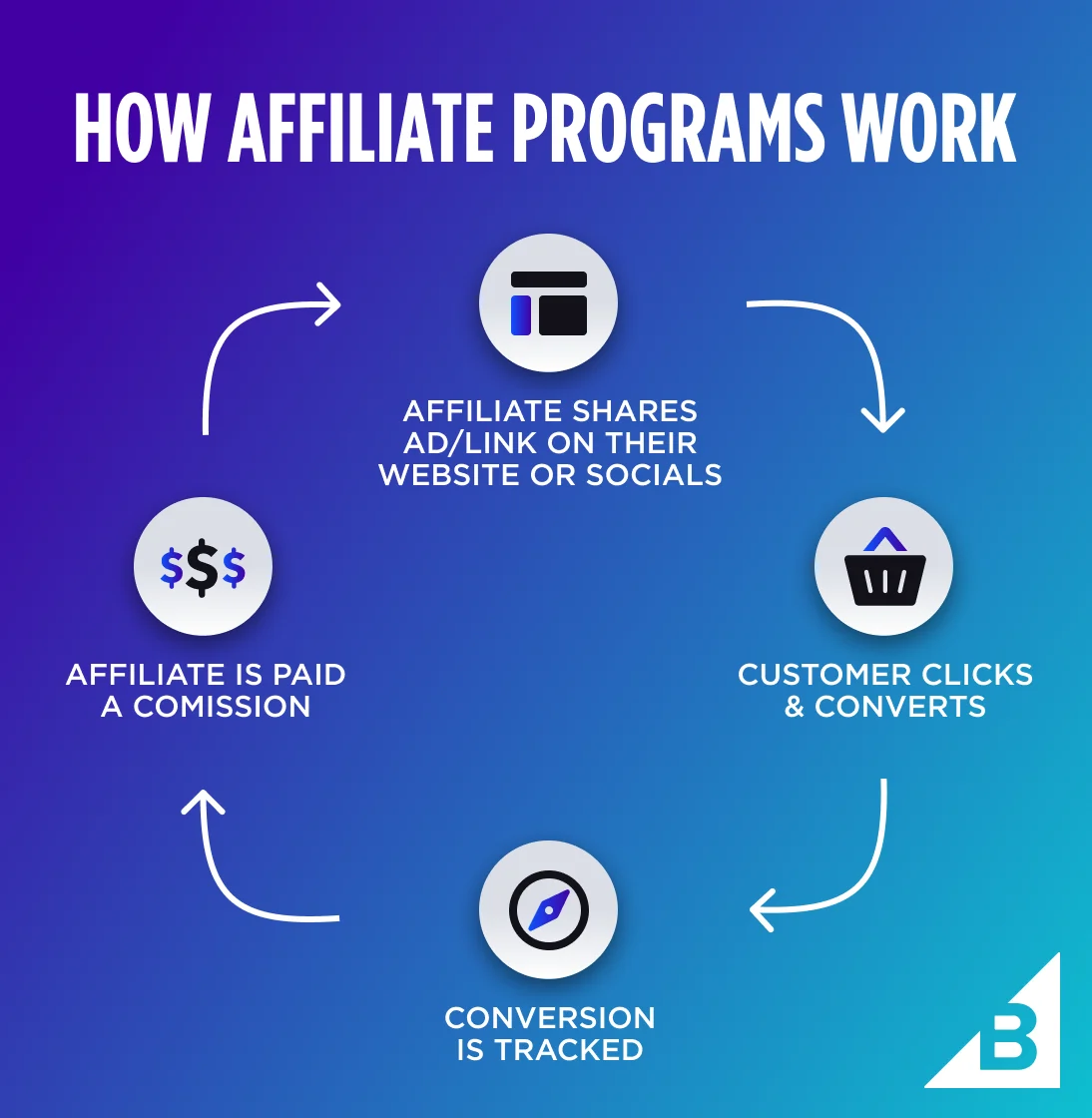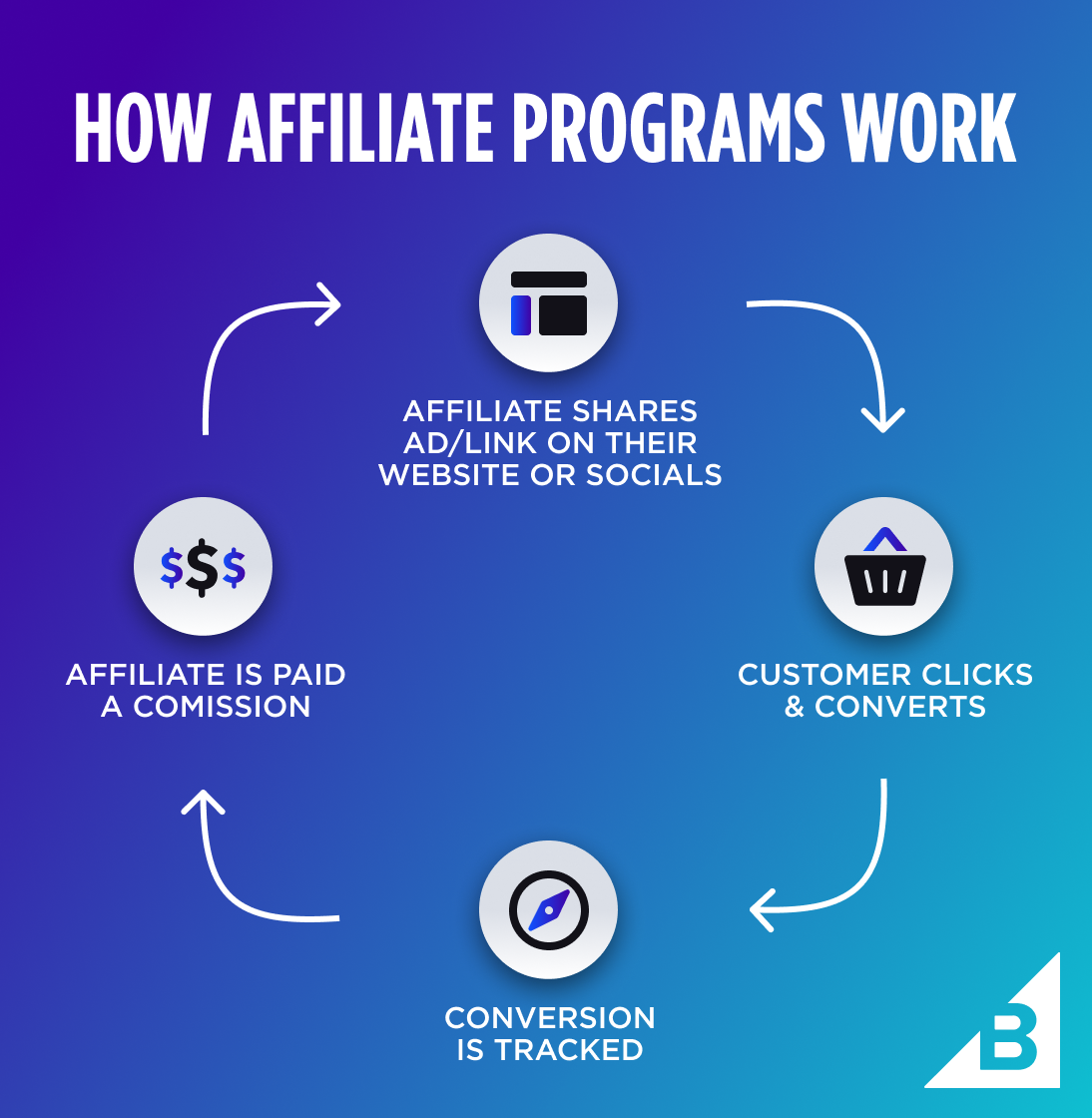To start affiliate marketing, you need a niche, a website or platform, and affiliate partnerships. Strong content and marketing strategies are essential.
Affiliate marketing is a popular way to earn passive income online. It involves promoting products or services and earning commissions for sales or leads generated through your unique affiliate links. The key to success in affiliate marketing lies in choosing a profitable niche and building a strong online presence.
Content quality and effective marketing tactics play crucial roles. By providing valuable information to your audience, you can build trust and drive conversions. Understanding your target audience and their needs will help you tailor your content and promotions effectively. With dedication and the right approach, affiliate marketing can be a lucrative venture.
The Essence Of Affiliate Marketing
Affiliate marketing works on trust and relationships. Affiliates promote products to their audience. Trust between the affiliate and their audience is crucial. Affiliates need to choose the right products. These products should match their audience’s interests. This helps in building trust and increasing sales.
Revenue sharing is a key part of affiliate marketing. Affiliates earn a commission on each sale they help make. The commission rate varies by product. Some products offer higher commissions. Others may have a lower rate. Affiliates must understand their commission structure. Knowing this helps them plan their marketing efforts better.

Credit: www.bigcommerce.com
Getting Started With Affiliate Marketing
A successful affiliate marketer selects a profitable niche. This niche should have high demand and low competition. Research is key to find the right niche. Use tools like Google Trends to check popularity. A good niche matches personal interests and market needs. Stay updated on market trends to remain competitive. Avoid niches that are too broad. Focus on specific target audiences.
Start with a reliable website or blog. Use WordPress for easy setup. Choose a good hosting service like Bluehost. SEO tools help in getting traffic. Use Google Analytics to track performance. Join affiliate networks like Amazon Associates. Email marketing tools like Mailchimp are useful. Social media platforms boost reach. Use Facebook and Instagram for promotion.
Building A Strong Affiliate Network
Creating a strong affiliate network demands clear goals, reliable tracking software, and competitive commissions. Effective communication and ongoing support for affiliates are also crucial.
Selecting Affiliate Partners
Choosing the right affiliate partners is crucial. Look for those with a good reputation. Make sure they have a strong online presence. Their audience should match your target market. This ensures better engagement and conversions. Check their previous performance and reliability.
Cultivating Relationships
Building strong relationships is key in affiliate marketing. Regular communication helps in this process. Offer support and resources to your partners. Show appreciation for their efforts. This strengthens trust and loyalty. Happy partners are more likely to promote your products effectively.
Credit: www.quora.com
Crafting Effective Affiliate Content
Create content that answers questions. Use keywords that people search for. Include product reviews and comparison tables. Add clear call-to-action buttons. Make sure your content is engaging and informative. Use high-quality images and videos. Keep sentences short and easy to read.
Use targeted keywords in your titles and headers. Write meta descriptions that are catchy. Optimize images with alt text. Include internal and external links. Make sure your site is mobile-friendly. Track your SEO performance regularly. Use tools like Google Analytics.
Legal And Ethical Considerations
Following laws is important in affiliate marketing. FTC guidelines must be followed in the USA. These guidelines help protect consumers. Affiliates must also respect international laws. Ignoring these laws can lead to fines.
Honesty is key in affiliate marketing. Clear disclosures must be made to users. Let them know if you earn from links. This builds trust. A simple statement can be enough. Always place disclosures where they are easily seen.

Credit: www.bigcommerce.com
Measuring Success In Affiliate Marketing
Key Performance Indicators help you track success. Conversion rate shows how many visitors buy something. Click-through rate tells you how many people click on your links. Revenue per click shows how much money you make per click. Customer lifetime value helps you see the total value of a customer. Return on ad spend shows how much profit you make from ads. Average order value tells you the average amount spent per order. Traffic sources show where visitors come from. Bounce rate tells you how many people leave without buying. Use these indicators to improve your strategy.
Analytics tools help you grow your business. Google Analytics can show you where visitors come from. Heatmaps can show where people click on your site. A/B testing lets you try different ideas to see what works best. Conversion tracking helps you see which ads lead to sales. User behavior reports show how visitors use your site. Keyword performance helps you see which words bring traffic. Social media analytics show how your posts perform. Email campaign tracking helps you see how well your emails do. Use these tools to make smart decisions.
Frequently Asked Questions
What Do You Need To Become An Affiliate Marketer?
To become an affiliate marketer, you need a niche, a website or blog, affiliate programs, quality content, and marketing strategies.
What Is Need For Affiliate Marketing?
Affiliate marketing needs arise from businesses seeking cost-effective ways to increase sales, brand awareness, and reach new audiences.
How Do I Get Approved For Affiliate Marketing?
To get approved for affiliate marketing, follow these steps: Choose a niche, create quality content, build an audience, apply to affiliate programs, and comply with guidelines.
What Documents Are Required For Affiliate Marketing?
You need an application form, tax information (W-9 or W-8BEN), identification proof, and a bank account for payments.
What Are The Basic Requirements For Affiliate Marketing?
A solid niche, quality content, a website, and a reliable affiliate program are essential.
What are the Key Requirements to Mitigate the Risks of Affiliate Marketing?
When engaging in affiliate marketing, it’s crucial to address the top affiliate marketing risks to ensure success. Key requirements include thorough vetting of affiliates, clear communication of expectations, and setting up strong monitoring and measurement systems. By addressing these risks head-on, businesses can mitigate the potential downsides of affiliate marketing.
Conclusion
Mastering affiliate marketing requires dedication, strategic planning, and the right tools. Focus on building trust with your audience. Stay updated with industry trends and continuously refine your approach. By meeting these requirements, you can maximize your earnings and achieve long-term success in affiliate marketing.
Start implementing these tips today for better results.
